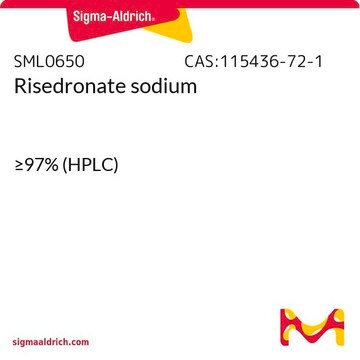SML0330
S3I-201
≥97% (HPLC)
Synonym(s):
2-Hydroxy-4-[[[[(4-methylphenyl)sulfonyl]oxy]acetyl]amino]-benzoic acid, NSC 74859
About This Item
Recommended Products
Quality Level
assay
≥97% (HPLC)
form
powder
color
white to beige
solubility
DMSO: >10 mg/mL
storage temp.
−20°C
SMILES string
Cc1ccc(cc1)S(=O)(=O)OCC(=O)Nc2ccc(C(O)=O)c(O)c2
InChI
1S/C16H15NO7S/c1-10-2-5-12(6-3-10)25(22,23)24-9-15(19)17-11-4-7-13(16(20)21)14(18)8-11/h2-8,18H,9H2,1H3,(H,17,19)(H,20,21)
InChI key
HWNUSGNZBAISFM-UHFFFAOYSA-N
Application
- to confirm the role of STAT3 phosphorylation in interleukin (IL)-33 production in lung epithelial cells and IL-22 mRNA expression in sorted group 3 innate lymphoid cells (ILC3s)
- to study the cellular response of STAT3 triggered by β-hexaclorocyclohexane (β-HCH) in various cell lines
- to examine the influence of STAT3 in response to angiotensin II (ang II) on induction of fibrotic proteins in kidney epithelial cells
Biochem/physiol Actions
Storage Class
11 - Combustible Solids
wgk_germany
WGK 3
flash_point_f
Not applicable
flash_point_c
Not applicable
Certificates of Analysis (COA)
Search for Certificates of Analysis (COA) by entering the products Lot/Batch Number. Lot and Batch Numbers can be found on a product’s label following the words ‘Lot’ or ‘Batch’.
Already Own This Product?
Find documentation for the products that you have recently purchased in the Document Library.
Customers Also Viewed
Our team of scientists has experience in all areas of research including Life Science, Material Science, Chemical Synthesis, Chromatography, Analytical and many others.
Contact Technical Service












